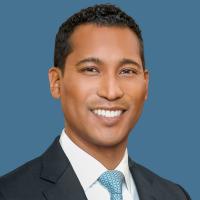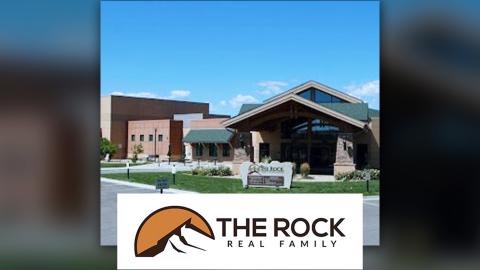Is Privacy the Tradeoff for Convenience in the Age of Digital Worship?
WASHINGTON — Technology has transformed the notion of worship as more churches and ministries carve out spaces in the digital world to respond to the trend of the faithful increasingly flocking to practice their beliefs online.
While mobile devices initially were seen as gateways for information, community, and entertainment, apps for religious tools like the Bible, devotionals, and prayer have made them popular among people of faith.
Yet the convenience of holding those apps in the palm of your hand comes at a price.
"There are certain tradeoffs in that not only do we get to reach the world for Christ and be able to share the Gospel, but in the same respect we're able to stay connected," said Jason Thacker, who oversees research in technology and ethics for the Southern Baptist's Ethics and Religious Liberty Commission.
"One of the parts that this conversation often stays is, 'Is technology good or bad?' And, in reality, it's kind of both," he conceded.
Privacy: The Price of Admission
Thacker has written extensively about the burgeoning intersection of technology and faith with books like The Age of AI and Following Jesus in a Digital Age, to be released in August. He warns while users enjoy modern conveniences, like reading the Bible on their phones, they often come at a intangible cost: privacy.
The demand for your personal details and digital habits mean users have moved from consumer to product.
"Often we talk about free services. They're not really free," Thacker explained. "You're paying for it by turning it and divulging this type of data in order to have that data manipulated and turned into various predictive products and those predictive products being sold to advertisers to get your eyeballs. So that's why you have a free Facebook account or TikTok or Instagram or Twitter."
With each download, users potentially give those apps sole discretion of just how much to collect.
Glyn Gowing, a cybersecurity expert and computer science professor at LeTourneau University, believes that temptation is too much for app developers to resist.
"I think that, in general, they're gathering far more information than they actually need," Gowing told CBN News. "There is far too much temptation to abuse that."
"You already have the information so why not try to profit from it, or why not try to use it for other things? And, as a Christian, I go back to right where it says in scripture, 'For all have sinned and fallen short of the glory of God,'" he added.
Prayers for Sale?
Founded in 2016, Pray.com has grown to become the number one app for daily prayer and biblical audio content. Its offerings include the popular audio Bible read by James Earl Jones and uplifting videos from Christian artists and athletes like Lecrae and Drew Brees. They're designed to fulfill the company's mission, which is to help people "grow faith and cultivate community."
But Pray.com made headlines in early 2022 after an online news outlet reported that the company buys information from data brokers to build user profiles with personal details already recorded through the app, like someone's location. The article also noted that the privacy policy acknowledges it shares user information with third parties, suggesting the company "reserves the right to sell your prayers."
Pray.com refuted the claim in an interview with CBN News.
"We do not sell data. We're not in the business of selling data," said Ryan Beck, Pray.com's co-founder and chief technology officer.
The company's original statement pushed back on what it described were "false claims" but saw "little to no effort" to correct the record. Beck contends the negative headlines generated about the privacy policy started with the initial report.
"The confusion lies in the original article — that it never directly says that we do, but it's worded in such a way to insinuate that we might," he explained. "We asked them to re-choose their wording, because we thought that it did not correctly reflect our practices."
Beck told CBN News Pray.com's number one priority is prayer, not making money off of its users.
However, Pray.com, like other for-profit, faith-based apps, has also drawn attention over big money investors who see an opportunity to form partnerships. According to Forbes, venture capital funding for faith-based apps in 2021 grew to $175.3 million, more than three times the total investment in religious apps in 2020.
Beck, who has worked for both nonprofit and for-profit ministries, believes venture capital funding provides a way for Pray.com to fulfill its mission, while allowing its financiers to leave a legacy.
"Before us, there wasn't a lot of interest in religion because it was a little bit taboo. People were a little scared to venture into it," he explained. "A lot of people were seeing the value that we can bring to the world, and they're wanting to do something beyond making money. So, they were wanting to leave a legacy. And our vision is to create a world where everyone leaves a legacy of helping others."
Still, cybersecurity experts say it's important be cautious.
"From a technology standpoint, it doesn't matter if it's a faith-based app. It's still technology," explained Gowing, who spent decades managing information for a Fortune 500 company. "Computers are completely agnostic. Computers don't have souls. They can't be saved."
Digital Engagement Through a Theological Lens
Most apps use data to facilitate a more personalized user experience, which can still leave the door open for privacy concerns. As a thought-leader in the space, Thacker encourages Christians to view their online engagement through a theological framework and to be mindful that their interactions leave a digital footprint that can affect their perception.
"We don't realize how that data can be used to manipulate us, to control us, to shape our perception of truth and reality, which I think is some of the biggest questions in terms of technology and what it's doing to us: is altering our perception of reality, is altering our perception of God, ourselves and others," he explained.
Thacker believes beyond gaining an understanding of how technology is being used, people of faith should be engaged in shaping the debate around privacy policy.
"That's where Christians can be involved and be involved in not only knowing what's happening and the issues at stake, but also providing this rich, Christian moral tradition or rich understanding of what does it mean to be human, which I think really is the most important question of the day—from digital privacy, to sexuality, {to} issues of abortion," he said. "That's where Christians have a very unique and deep responses to understanding that we're created in the very image of God."
In the United States, the issue of privacy protection continues to spark debate over best practices on the state and federal levels. While residents of the European Union have the General Data Protection Regulation to serve as guidance on personal data collection, only a handful of states, like California, currently have passed similar laws.
With years of experience helping ministries develop their own philosophies around data and privacy, Gowing has a simple suggestion for all technology users.
"Be careful where you download your applications," he warns. "That's really the most that you can do, because people are going to be using these apps, and, at some point, stuff is on somebody else's computer. That's where you lose control of it. You can only really control what you tell them and what is on your own device."




